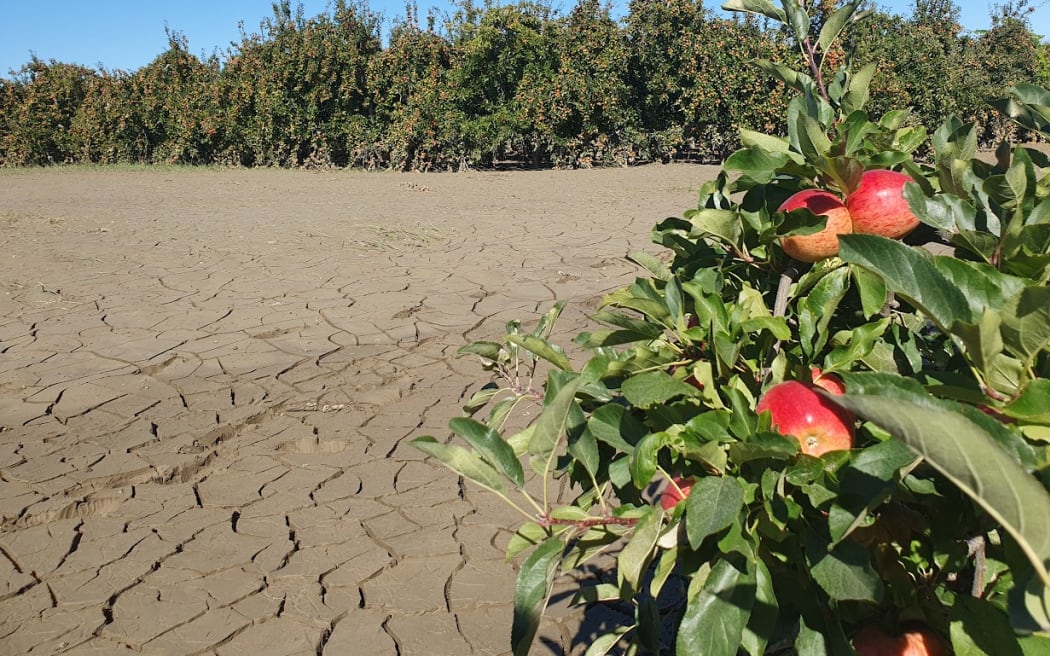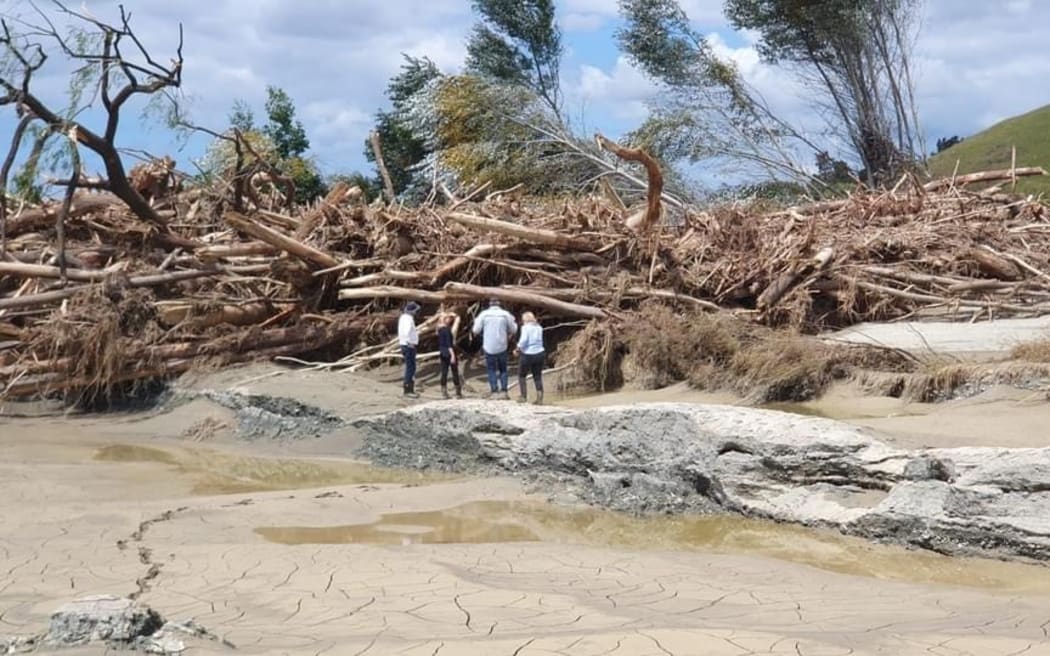
Silt drying and cracking at Lesley Wilson's orchard on Swamp Road in Hawkes Bay after Cyclone Gabrielle Photo: RNZ/Sally Round
It's nearing the end of what is normally the apple-picking season in Hawkes Bay and Lesley Wilson has been busy at work.
But the apples she is picking are to ensure her tree's fruit next year - most of those she's picked will be going to the bin.
"The valley still looks like a disaster zone, even though we've been working for ten weeks to tidy things up.
"Silt is still being removed on a daily basis from properties up and down the valley. We got rid of very large trees, logs, that were on our property but we've still got enormous piles of trees that need to be either burned or chipped."
Those that can afford it have been working to clean the silt up between the rows in the orchard and put it in a pile for the local council to collect.
However, Wilson said it was very costly to do that.
When Country Life first met Wilson, 10 days after Cyclone Gabrielle hit, she was still weighing up the damage.

Tree debris piled high on the Wilson family orchard after Cyclone Gabrielle. It bowled over apple trees. Photo: Lesley Wilson
Now, she says she was able to salvage a little.
"We've got three orchards. Two we couldn't salvage any crop. One we could salvage the top half to a third of the tree, on two-thirds of the block.
"Then we have spent the rest of the time removing fruit from trees so we have a crop for next year."
She said orchards with silt a meter high will most likely have to pull out the trees.
"We've got an orchard that half of it's completely gone. There are no apple trees left at all. The large trees that came with the flood just took it out.
"Another one of our blocks, there are a couple of dead patches within the block but we are not terribly worried about that because it's not huge.
Wilson said you can start to tell now if the tree is going to survive.
"The interesting thing is the modern way of growing apple trees stand up really well to flooding.
"But it's when you've got the wooden debris coming through, like 60-year-old pine trees, or willows of the stopbank or poplars, that's when the damage gets done."
Wilson said she was staying in a cabin once used for staff until she's given the go-ahead - or not - to rebuild the family home.
"Everything is still up in the air. I'm still pretty positive really, I have my bad moments but as long as the sun keeps shining it's good."
She said it was getting tough now as she and many other growers needed clear direction from the government.
"We need to be able to make decisions about whether we can live where we want to live or not, whether we can rebuild or not.
"Banks need assurance from the government so they can keep funding us. I know growers need to make decisions about full-time employees because as an industry we've lost 25 percent of our growing area, and for this season, 33 percent of the crop in Hawkes Bay.
"That has a huge implication on our employees and the banks need government assurance that we will get a funding package beyond the '$2000 a hectare' so they can continue to support us going forward."
The silver light has been community.
Wilson said the weather event has brought everyone closer.
"We have made new friends. Neighbours have become very important to us. The Puketapu Hotel, Mary there has been really amazing looking after us.
"It keeps your head on straight and gives you a few laughs and you can carry on."

